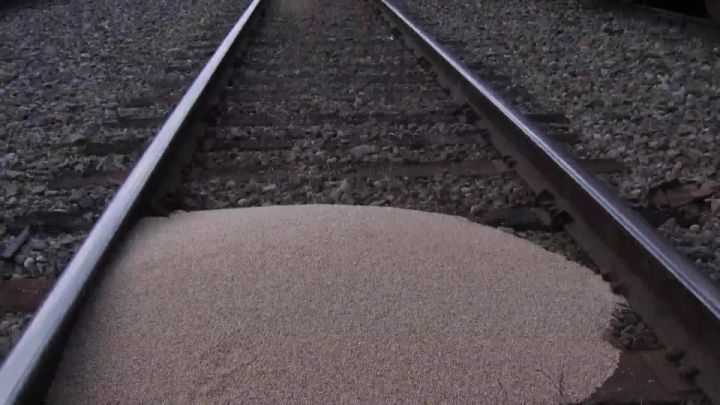A conservationist is questioning the direction Parks Canada and CP rail are going to mitigate human-caused bear deaths.

Jim Pissot, of the WildCanada Conservation Alliance, is reacting to the results of a five-year research project.
He called the study impressive, but said the mitigation work needs to go further.
Pissot said CP should be treated the same way tourists are if they get caught feeding wildlife.
He blames grain as the number one factor causing grizzly bear mortality in Banff and Yoho National Park and thinks Parks Canada should hold the company accountable.
Parks Canada said it works closely with CP rail.
CP points out a research project dismissed the notion that grain is the main contributor to bear mortality in the mountain parks.

Get breaking National news
Both Parks Canada and CP have laid out a list of ongoing projects they are involved in to keep bears away from the tracks, including getting rid of Buffalo berry bushes and burning new habitats to attract them to safer areas.
CP said it has spent millions of dollars fixing leaky grain cars and helped fund the most recent study.
On Tuesday the company issued this statement:
“Over the years, people have become entrenched in their positions on this very important topic. That is why, CP, working closely with Parks Canada, decided it was necessary to engage the academic community – who could provide sound, unbiased, and peer-reviewed science.
The perception that the largest contributing factor to grizzly bear mortality risk on the tracks is grain was not supported by the important research that was completed by Parks Canada and Universities of Alberta and Calgary.
Prior to the start of the intensive phase of the research program, the grain hopper car gate replacement had been completed. While not quantified as part of the research, this work was a tremendous success and there is much less grain reported on the tracks.
The research has succeeded in identifying opportunities like improving vegetation management along the railway and installing electromats at select locations to deter bears.”
In the past decade, 10 grizzly bears have been reported as being killed by trains in Banff and Yoho National Parks.
It’s estimated there are only about 60 grizzly bears left.







Comments